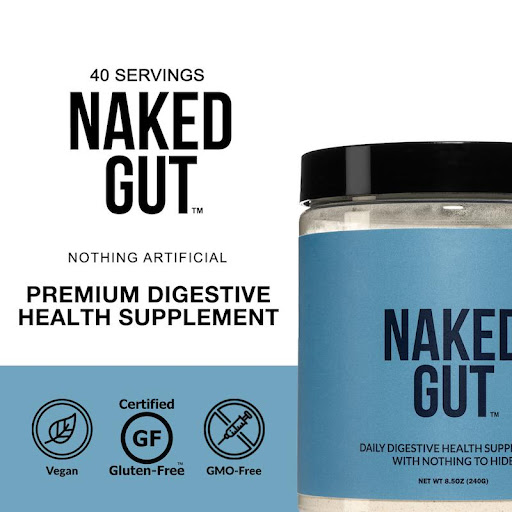Intermittent fasting (IF) is one of the most popular diet trends, although fasting is not actually a new practice. In fact, the practice of fasting has been around for thousands of years for religious and cultural reasons.
IF is popular among dozens of celebrities. Some have even been openly public about their experiences, including Jennifer Aniston, Gisele Bündchen, Elsa Pataky, Kourtney Kardashian, Halle Berry, Scarlett Johansson, Reese Witherspoon, Vanessa Hudgens, and Mindy Kaling.

With so many celebrities using IF, you might be wondering whether it’s a good idea for you?
What Is Intermittent Fasting?
Intermittent fasting (IF) is an eating plan that cycles between periods of fasting and periods of eating. Instead of a traditional “diet,” IF is more about timing and patterns of eating. But, when the fasting period is done, it doesn’t mean eating whatever you want. For optimal results, IF should be paired with a well-balanced, whole foods diet.

There are several IF schedules. One popular pattern is time-restricted eating, where you only eat within a specific time frame each day. A popular variant of time-restricted eating is the 16/8 pattern. Meaning you eat during a window of 8 hours of the day, and then fast for the remaining 16 hours.
Popular 16/8 windows include:
- Eating window 9 AM to 5 PM, then fast from 5 PM to 9 AM
- Eating window 10 AM to 6 PM, then fast from 6 PM to 10 AM
- Eating window 11 AM to 7 PM, then fast from 7 PM to 11 AM
- Eating window 12 PM to 8 PM, then fast from 8 PM to 12 PM
Another popular pattern is alternate-day fasting.
With this pattern, you alternate between normal days of eating and restricting energy the other days. A variant of alternate-day fasting is the 5:2 method. Here you eat as you normally would for 5 days and then restrict energy on the remaining 2 days.
Why Do So Many Celebrities Use IF?
IF patterns can be adapted to fit busy lifestyles, which is one reason why it’s popular among celebrities. The structured pattern of eating helps them to manage weight and body composition. IF is also used for its purported anti-aging and anti-inflammatory effects.
What Are the Benefits of IF?

Studies show that IF can result in powerful metabolic, neurological, digestive, and cardiovascular benefits.
Besides being an effective weight-loss tool, IF can improve body composition, glucose control, and blood pressure. IF may also provide anti-inflammatory and anti-aging effects.
- This review of 11 meta-analyses found beneficial associations of IF with body composition and with the cardiovascular system.
- This review article reports that IF may slow or reverse aging and disease processes. It goes on to say that studies show a broad spectrum of health benefits with IF for many health conditions, including obesity, diabetes, heart disease, cancer and neurologic disorders.
- This review reports that IF reduces the concentration of total cholesterol, triglycerides, and LDL cholesterol.
- A pilot study published in 2019 showed that IF resulted in a 5.3 cm decrease in waist circumference. Loss of visceral abdominal fat has numerous health benefits in itself.
Are There Any Risks?
During the fasting period, some people forget to stay hydrated and are at risk for dehydration. Staying hydrated by drinking calorie-free beverages during the fasting period is essential. Good beverage choices include water, lemon or cucumber water, black coffee, tea, and diluted apple cider vinegar.
Some people experience side effects during the fasting period. Common side effects include hunger, irritability, and a reduced ability to concentrate. These side effects usually disappear as your body adjusts to IF. But, to be on the safe side, report any side effects to a trusted health professional before proceeding.
You should stop IF if you experience serious side effects like under-nutrition, food obsessions, hair loss, binge eating, changes to your menstrual cycle, sleep disturbances, or mood changes. Pay attention to your body and report any side effects to your doctor.
IF is not for everyone, including but not limited to children, adolescents, pregnant and breastfeeding women, or for people with a history of an eating disorder, type 1 diabetes, or for people at risk for malnutrition.
Consult your doctor before starting an IF plan and make sure it is safe for you. Especially if you have a medical condition like diabetes, cancer, or if you have a history of hypoglycemic episodes.
How Do I Know if IF Is Right for Me?
The best way to know if IF is right for you is to meet with a doctor or dietitian.
Once you get clearance, it’s advised that you work with a dietitian to figure out which IF method works best for you. If you force yourself to follow a method that doesn’t fit with your lifestyle, then it won’t be sustainable.

What’s the Best Way to Break a Fast on IF?
Ideally, to break a fast, you ease back into your normal eating routine. This doesn’t mean you eat whatever you want though.
You want to avoid a meal that is exclusively carbs or that contains refined carbs. It’s best to stick with whole, gut-friendly foods that are easily digestible.
For example, eggs scrambled with sautéed vegetables like spinach and peppers. Avocado is also an excellent, easily digestible food. Try keeping a food journal so that you can keep track of the foods that work best with your digestive system.
Another great way to break a fast is with a high-protein smoothie or shake.
Try adding a high-quality gut health supplement like Naked Gut to smoothies, shakes, or smoothie bowls. Naked Gut includes some of the best supplements for gut health like fiber, probiotics, prebiotics, glutamine, and more.
Summary
The popularity of IF is in part due to several celebrities, who have promoted it as a way to manage weight. For some people IF is a preferred way of eating because it gives them structure, without the hassle of counting calories. And it can be customized to one’s own unique lifestyle.
While the research on IF is promising, there are some important steps to take before starting a new diet. First, check with your doctor or a trusted health professional to see if it is safe for you. Especially if you have an underlying medical condition.